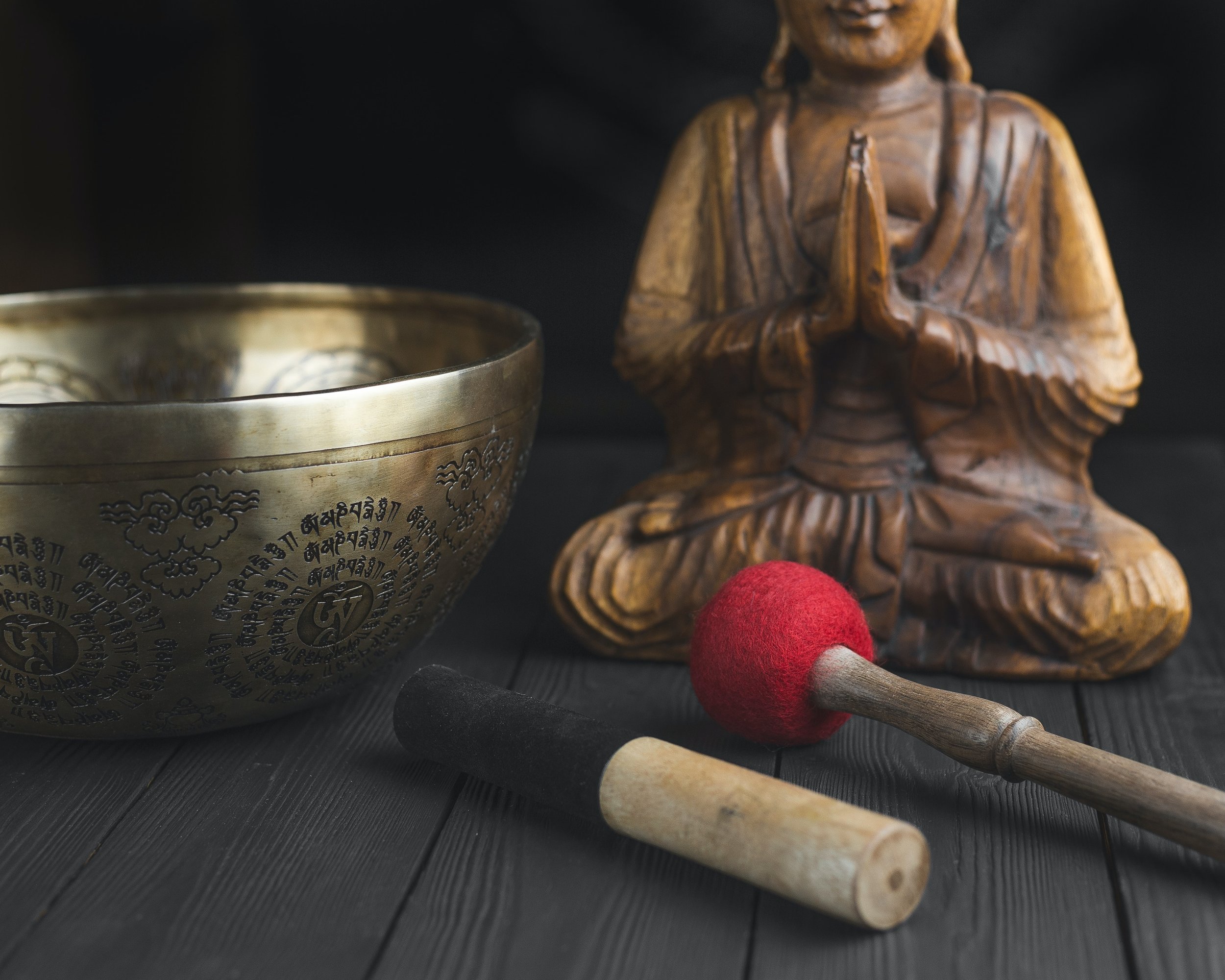Welcoming Everyone: Dharma Practice for Daily Life
Two practitioners in the Dharma Training Program talk about the benefits of structured Buddhist training in challenging times.
“I really enjoy the female-led focus at Sukhasiddhi. I grew up a seventh-generation Utah Morman and have a lot of distrust of religious hierarchy. Even in Buddhist groups I’m reticent to make any commitment or follow, but I really respect Lama Palden and Lama Döndrup. I don’t have any kind of reticence with them, so that’s been good.I took a retreat with Lama Palden a few years ago when I used to live in Davis, California. I kept in touch with Sukhasiddhi, and then when I moved back to Salt Lake, I looked for a sangha here but nothing appealed to me.
JENNY K. |
Salt Lake City, UT
With all that's going on in the world, the yidam practices have been particularly helpful, because there’s a point where you can welcome everyone, including people you’re having difficulty with, into the practice. That’s so profound for a time like this, because there are so many voices in the world that are so difficult to hear — that are so destructive. These times are stressful, but not nearly as stressful as if I didn’t have that kind orientation.
By then, Sukhasiddhi Sundays were available online and I decided to sign up. Ironically, it’s a lot more convenient for me now, being online. It was impossible for me to get to Sukhasiddhi regularly when I was in Davis.
The teachings in the Dharma Training Program have helped me with specific things. Until the epidemic, I was working as a chaplain in a hospital and there were many challenges. Green Tara practice really helped with that, and the Medicine Buddha practices as well. They help me in different relational fields than the other practices that I work with — the things that are part of daily life and dealing with other people.
With all that's going on in the world, the yidam practices have been particularly helpful, because there’s a point where you can welcome everyone, including people you’re having difficulty with, into the practice. That’s so profound for a time like this, because there are so many voices in the world that are so difficult to hear — that are so destructive. These times are stressful, but not nearly as stressful as if I didn’t have that kind orientation.
I participate in Buddhist and Taoist teachings in other places as well as at Sukhasiddhi. I like having a range of different approaches. It feels like each one is different enough that it gives me a more comprehensive view. I’m a very somatic absorber of teachings, and the practices offered from these different places each feel like they do different things to my brain and help me understand the phenomenological world in different ways.” - Jenny K., Salt Lake City, UT
“I started getting interested in Buddhism when I was 15 — particularly Tibetan Buddhism. I have had a daily meditation practice for a while, but only recently has my sangha more become Sukhasiddhi. My practice has gone from focusing on calm abiding and chanting to starting to do the visualizations and such.
SEAN L. | Oakland, CA
I was looking for an organized way of deepening both my practice and understanding of the teachings. Lama Palden suggested the Dharma Training Program as a good way to prepare for longer retreats. I like that Lama Döndrup and Lama Pat have both integrated whatever is going on in the world with what we are doing in the program. We do many practices that dedicate merit and blessings to coronavirus. I especially like the Tara who Dispels Epidemics practice. Lama Döndrup has also tried to weave in a lot about racism, bringing more awareness to that in our practice on and off the cushion.
I was looking for an organized way of deepening both my practice and understanding of the teachings. Lama Palden suggested the Dharma Training Program as a good way to prepare for longer retreats. I like that Lama Döndrup and Lama Pat have both integrated whatever is going on in the world with what we are doing in the program. We do many practices that dedicate merit and blessings to coronavirus. I especially like the Tara who Dispels Epidemics practice. Lama Döndrup has also tried to weave in a lot about racism, bringing more awareness to that in our practice on and off the cushion.
My main passions are filmmaking and Kung Fu. I’m a filmmaker and have been working as an editor for my Kung Fu school to move the programs online. I usually do quite a bit of Kung Fu as a regular part of my life, but recently I’ve had health troubles. Especially during this time, the Dharma Training Program is a really good reminder and place to connect with the Dharma. I always feel like there’s further to go with the foundational teachings. Even though I have my own practice at home, whenever I go to the Dharma Training classes, it enlivens my practice and feels like it brings the living juice of blessing.” - Sean L., Oakland, CA
Learn more about Sukhasiddhi’s Dharma Training Program
DHARMA TRAINING PROGRAM
Deepen your dharma practice while allowing for the flexibility needed to tend to your everyday commitments.
The process begins with the completion of your online application.
-
Study and practice within a supportive cohort.
Experiential understanding of the fundamental teachings of the Buddha from a viewpoint of the Vajrayana tradition.
Instruction in silent meditation practice (calm abiding) as well as an introduction to Green Tara and Chenrezig meditation.
Individual guidance in one's personal practice and study from a qualified Lama.
Preparation for deeper programs of study.
-
Kick-off Orientation and Teaching Session – 5 hours
Weekly Sukhasiddhi Sunday class series: six weeks of dharma teachings and meditation practice.- 3.5 hours each week
Awake in the World classes with a specific teaching and practice - 2 hours per week - learn more here.
One individual consultation with Lama Döndrup during the 3 months. (Two consultations for first time participants)
-
The Dharma Training Program is specifically for those who are interested in exploring and deepening dharma practice and want to be part of a spiritual community of like-minded individuals.
You will be introduced to a variety of Buddhist teachings and practices, and be supported to choose and practice an authentic path in the midst of your work and family commitments.



